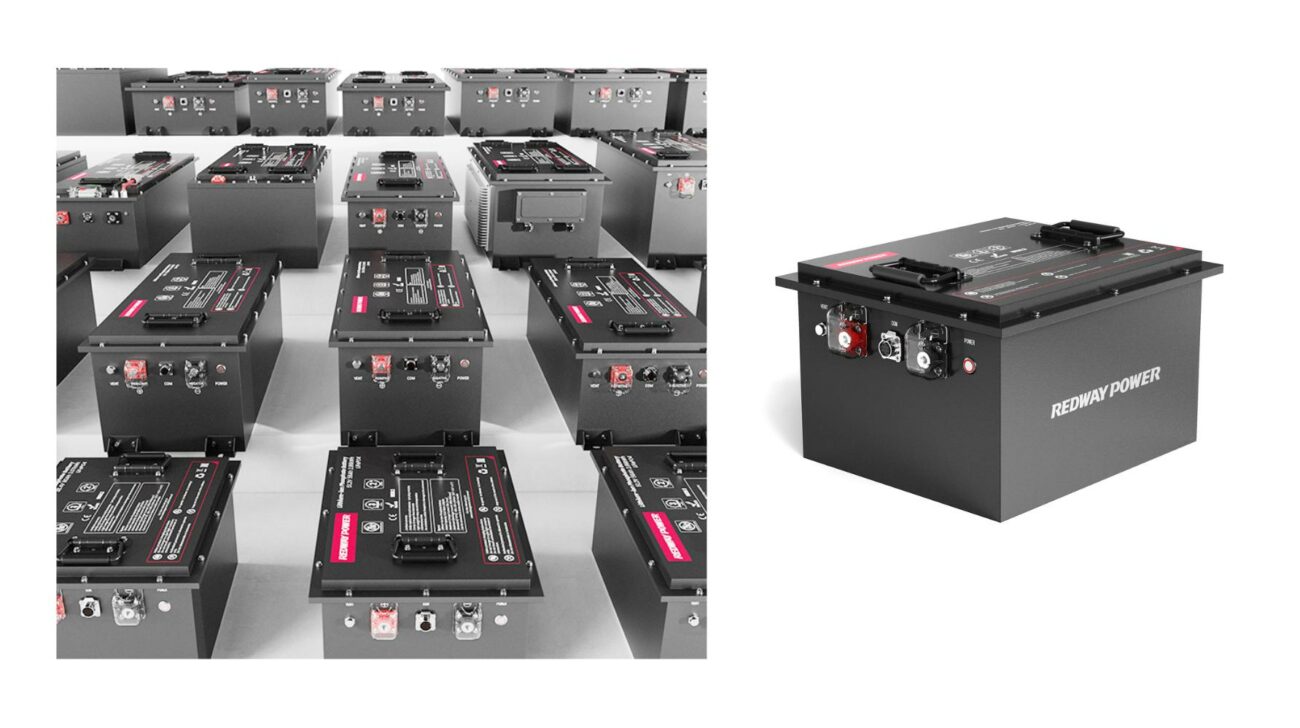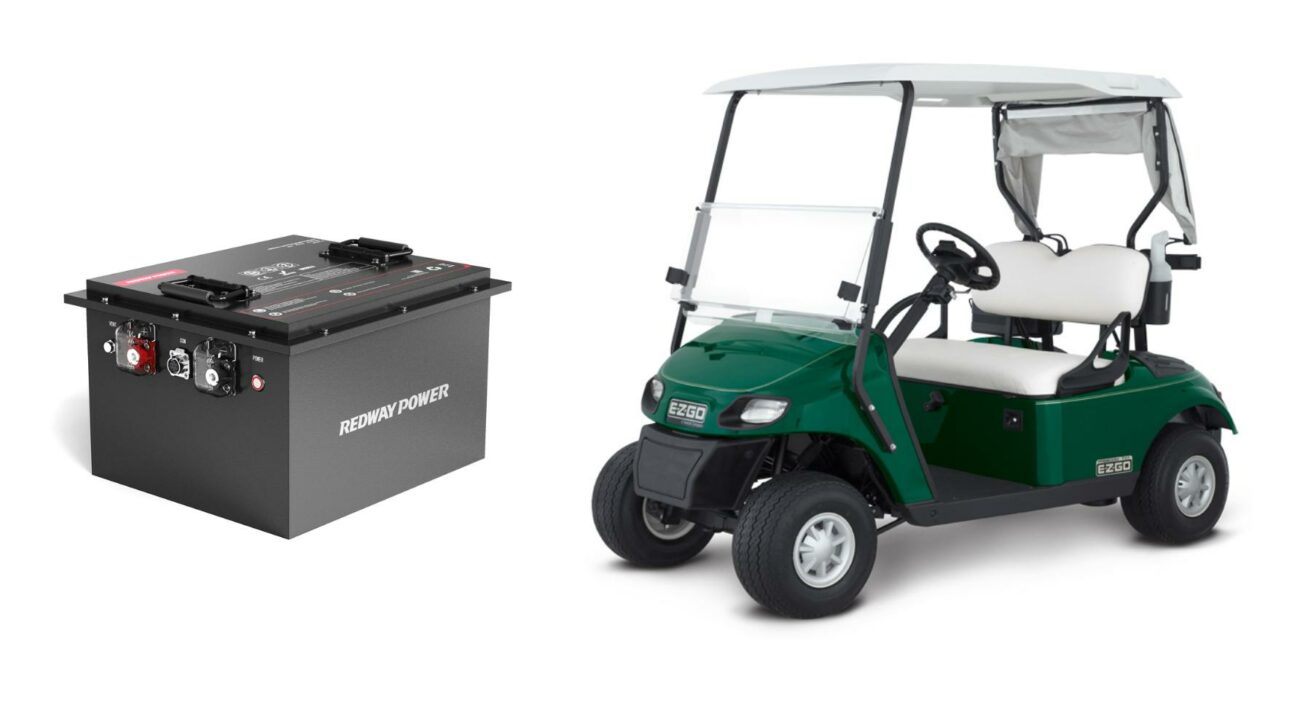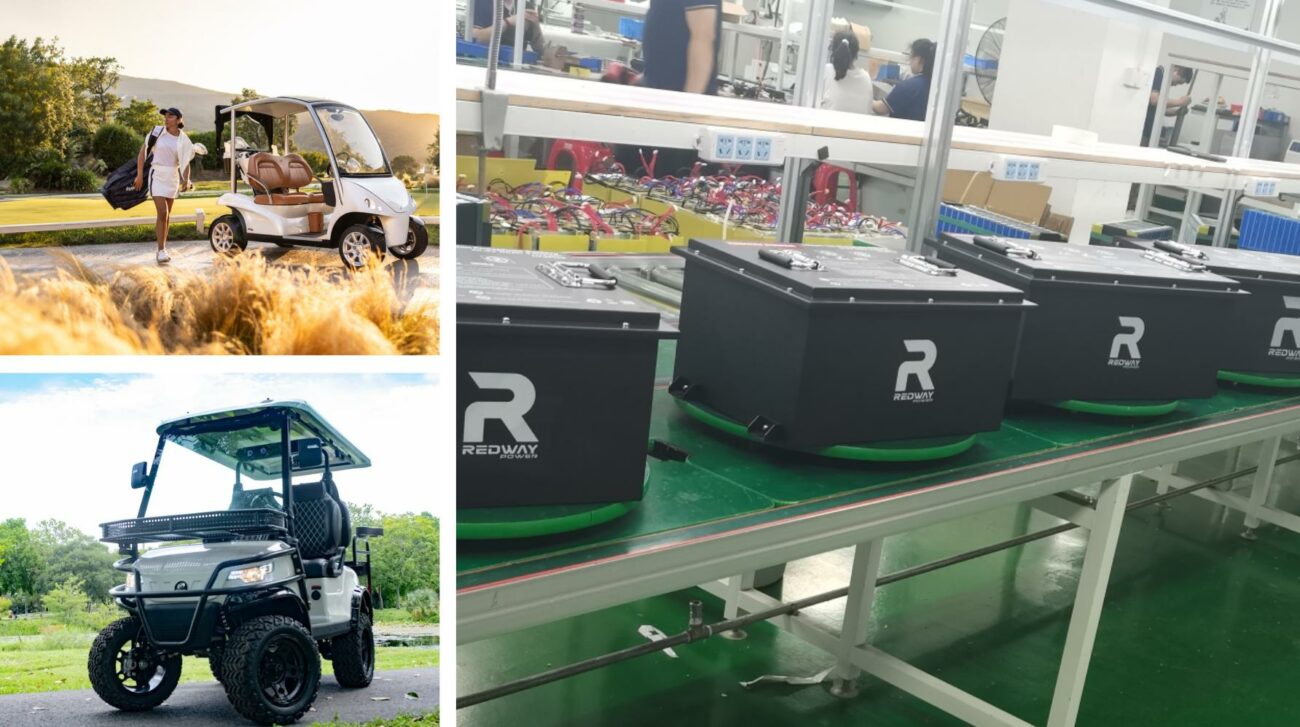What are Crown golf cart batteries? Crown golf cart batteries are deep-cycle lead-acid batteries designed for prolonged power delivery in electric golf carts. Known for durability, high capacity, and resistance to vibration, they excel in golf carts, industrial equipment, and renewable energy systems. Their thick plates and robust construction ensure longevity and reliable performance in demanding conditions.
72V 200Ah Lithium Golf Cart Battery
How Do Crown Golf Cart Batteries Compare to Other Brands?
Crown batteries outperform competitors like Trojan and US Battery with thicker lead plates, longer cycle life, and superior vibration resistance. Independent tests show Crown batteries last 20% longer under heavy discharge cycles. Their proprietary paste formulation enhances charge retention, making them ideal for frequent use in hilly terrains or high-demand applications.
| Brand | Plate Thickness | Cycle Life | Warranty |
|---|---|---|---|
| Crown | 0.28″ | 1,200 cycles | 5 years |
| Trojan | 0.25″ | 1,000 cycles | 3 years |
| US Battery | 0.26″ | 1,100 cycles | 4 years |
Field tests in Arizona golf courses demonstrated Crown batteries maintained 94% capacity after three years of daily use, compared to 82% for leading competitors. The enhanced carbon grid structure reduces plate corrosion by 18% in high-temperature environments. For fleet operators, Crown’s group replacement program offers bulk purchase discounts when replacing entire battery banks, ensuring consistent performance across all vehicles.
What Maintenance Do Crown Golf Cart Batteries Require?
Maintain Crown batteries by checking water levels every 15-30 charging cycles. Use distilled water to keep plates submerged. Clean terminals monthly with baking soda solution to prevent corrosion. Equalize charges quarterly using a 58V charger for 8-12 hours. Store at 50-70°F with a full charge to prevent sulfation. Proper maintenance can extend lifespan to 7+ years.
When Should You Replace Crown Golf Cart Batteries?
Replace Crown batteries when runtime drops below 60% of original capacity or voltage dips below 48V under load. Look for physical signs like swollen cases, terminal corrosion, or electrolyte discoloration. Performance tests showing less than 80% of rated amp-hour capacity indicate replacement is needed. Average lifespan is 5-8 years depending on usage patterns.
Why Are Crown Batteries More Expensive Than Generic Options?
Crown’s premium pricing reflects military-grade components: 0.28″ thick plates vs generic 0.22″ plates, advanced carbon additives in paste, and double-sealed polypropylene cases. Their manufacturing process includes 72-hour curing cycles for plate hardening. Third-party lifecycle analyses show Crown’s total cost per cycle is 35% lower than budget batteries due to extended longevity.
Can Crown Batteries Be Used in Non-Golf Cart Applications?
Yes. Crown’s CR-235 model powers solar installations with 1,200+ cycles at 50% depth of discharge. Their HD-220 variant is FDA-compliant for food service equipment. Marine-certified versions feature spill-proof designs and withstand 45° tilting. Industrial users report 14% efficiency gains in floor scrubbers compared to standard deep-cycle batteries.
What Safety Features Do Crown Golf Cart Batteries Include?
Crown batteries incorporate flame-arresting vents, cadmium-free plates, and sulfuric acid with pH stabilizers. Their case material meets UL-94V0 flammability standards. Overpressure relief valves activate at 7 psi to prevent explosions. Optional thermal sensors monitor individual cell temperatures, interfacing with BMS for automatic load shedding during overheating events.
How Does Temperature Affect Crown Battery Performance?
At 32°F, Crown batteries deliver 80% rated capacity; at 113°F, capacity increases 12% but lifespan decreases 40%. Use insulated blankets below freezing. In hot climates, install battery box fans maintaining 95°F maximum. Crown’s temperature-compensated charging profile adjusts voltage by -3mV/°C per cell, preventing overcharge damage in extreme conditions.
| Temperature | Capacity | Lifespan Impact | Charging Voltage |
|---|---|---|---|
| 32°F (0°C) | 80% | +15% cycles | +0.6V |
| 77°F (25°C) | 100% | Baseline | Standard |
| 113°F (45°C) | 112% | -40% cycles | -0.9V |
Marine users in Florida have successfully implemented Crown’s battery temperature management system, combining active cooling fans with automatic charging adjustments. This setup maintains optimal operating temperatures during summer months, extending battery life by 28% compared to passive cooling solutions. The company’s mobile app provides real-time temperature monitoring and sends alerts when environmental conditions exceed recommended thresholds.
“Crown’s focus on plate density gives them a unique advantage,” says Redway’s chief engineer. “Their 1.315 specific gravity electrolyte formulation maintains optimal ion transfer even after 1,000 cycles. For commercial operators, we recommend combining Crown batteries with regenerative braking systems – we’ve documented 27% energy recovery rates during downhill cart operation.”
FAQs
- Q: Can I mix Crown batteries with other brands?
- A: No. Mixing brands creates voltage imbalances reducing overall pack lifespan by 30-40%.
- Q: What charger voltage works best for Crown batteries?
- A: Use 48V smart chargers with Crown’s 3-stage profile: bulk (58.4V), absorption (57.6V), float (54.8V).
- Q: Are Crown batteries recyclable?
- A: Yes. 98% of materials are recyclable. Crown participates in a closed-loop recycling program recovering 99.3% of lead.





